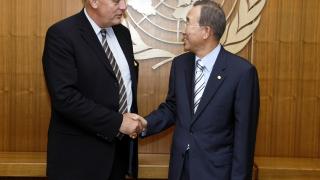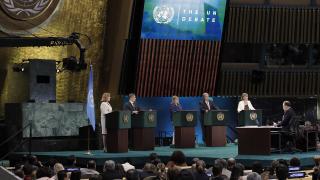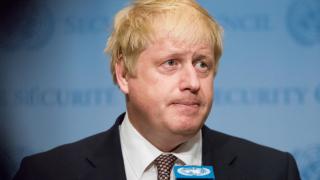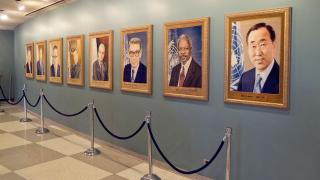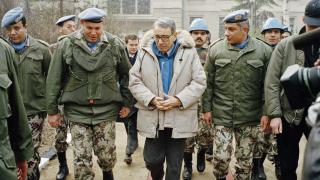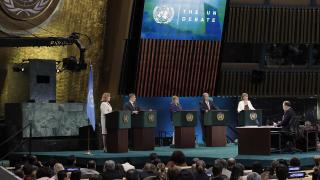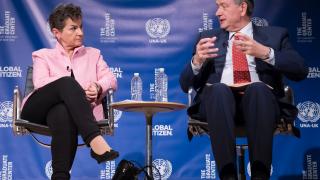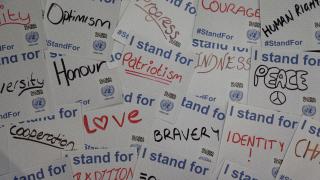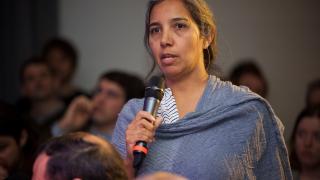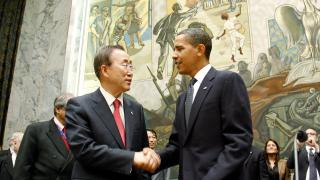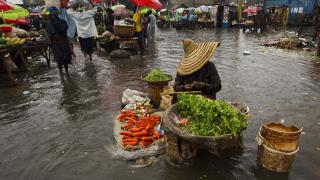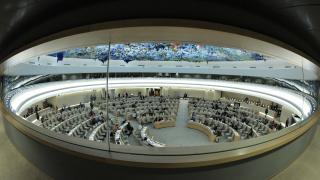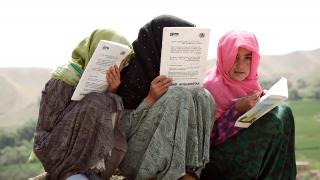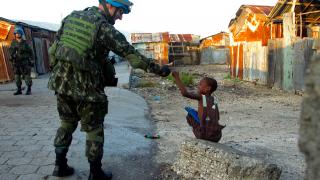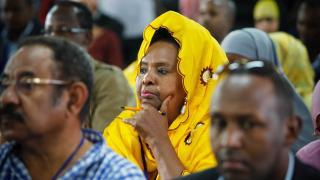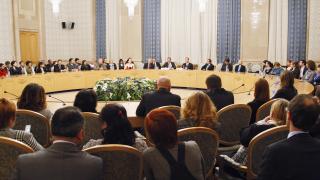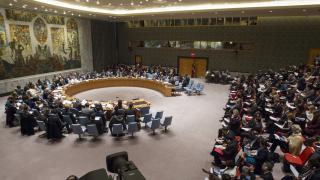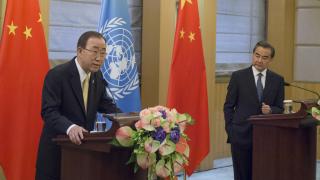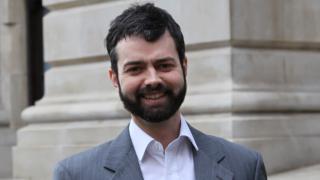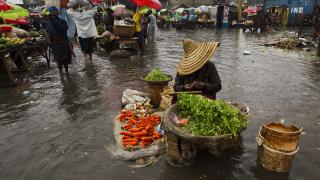
It’s January 2017 and you have just landed yourself the job of ninth United Nations Secretary-General. You sit at your desk for the first time and think. What comes top of your agenda? Ongoing conflict in Syria, Yemen, South Sudan? The flight and plight of refugees? Growing political instability, polarisation and radicalisation? Yes, yes, yes to all of the above, but focus: how did we get here? How can we stop all this from happening again, in a rapidly changing climate?
The job facing the next UN Secretary-General is not an easy one. Clumsy growth and globalisation are pushing people and planet to breaking point. But being the UN’s leader means taking the long-view. It means providing a guiding light in our interconnected, fragile and crisis-ridden world.
Climate change poses an existential threat to the UN’s mission
The potent cocktail of global threats – including rapid urbanisation, mass youth unemployment and competition for basic resources – is only made more deadly by climate change. Climate risks touch everyone, everywhere, threatening the UN’s success. To maintain the Organisation’s relevance, the next Secretary-General will have to grip this amorphous challenge and confront realities which include:
- An overburdened humanitarian system, struggling under higher incidences of crises which have been triggered or worsened by climate impacts. In 2014, 17.5 million people were displaced by weather-related disasters. This number is set to rise, as the Intergovernmental Panel on Climate Change projects an increase in the intensity and frequency of such disasters.
- Peacebuilding efforts which do not have the resilience to withstand climate impacts. Research shows that in communities with high levels of ethnic divides – often correlating with the proliferation of UN peacekeeping – climate impacts are enhancing the risks of armed conflict.
- The rollback of progress made in the pursuit of the Millennium Development Goals. The World Bank estimates that unmitigated climate change could see 100 million people rolling back into poverty by 2030.
Unmanaged, challenges like these will eat away at the heart of the UN’s mission to maintain peace, rights and security.
Luckily, there’s a good precedent to work with
2015 was the year that reinvigorated multilateralism. In December, the UN facilitated a turning point for international consensus on climate action. Secretary-General Ban Ki-moon was pivotal in holding the global climate conversation together. He reached out to world leaders, convened discussions, created platforms to pledge shared commitment and kick-started initiatives which mobilised the UN to deliver climate action projects.
By the end of 2015 the UN had delivered a roadmap to sustainable development, embodied in the Agenda 2030, and landed a global agreement on climate change in Paris. The world accepted its fate: to cap warming we would have to reduce greenhouse gas emissions to zero and, in parallel, adapt to the changing climate.
These agreements moved the UN beyond isolated climate action to an integrated response with holistic objectives. Across the UN’s operations, tough choices will have to be made to halt investment in destructive behaviours which deliver short-lived successes and offer false hope. And so the questions begin: how do we invest in a community whose home is soon to be uninhabitable? How do we uphold the rule of law when climate impacts weaken the capacities of judiciaries and governments? Where is climate change threatening security and how do we engage in peacekeeping?
Making the UN truly climate resilient
The job for the next Secretary-General is to integrate climate action and thinking into all aspects of the UN’s work. Ban Ki-moon’s Resilience Initiative – Anticipate, Absorb, Reshape – reflects this sentiment but lacks disruptive force. The Initiative’s projects add capacity to the system and build global resilience but haven’t had the cut-through to ‘reshape’ the UN. The next Secretary-General will need to change this and make sure that the urgency to act on climate is heard above the noise of other immediate crises.
The ninth Secretary General must begin by ensuring that there is allocated responsibility within each UN body and agency for managing climate risk. In this way, each institution can stress-test its operations against climate scenarios to understand the challenges and opportunities they face and be accountable to managing them. Additionally, the Secretary-General must mobilise the power of the Security Council to elevate impending global climate concerns such as the cascade consequences of breaching global tipping points.
The climate is guaranteed to change over the next cycle. It’s up to the next Secretary-General to make sure the UN keeps pace.
Photo: Hurricane Sandy passed to the west of Haiti on 25 October, causing heavy rains and strong winds, flooding homes and overflowing rivers. A woman sells produce at a flooded market place. Copyright UN Photo/Logan Abassi



